Your cart is currently empty!
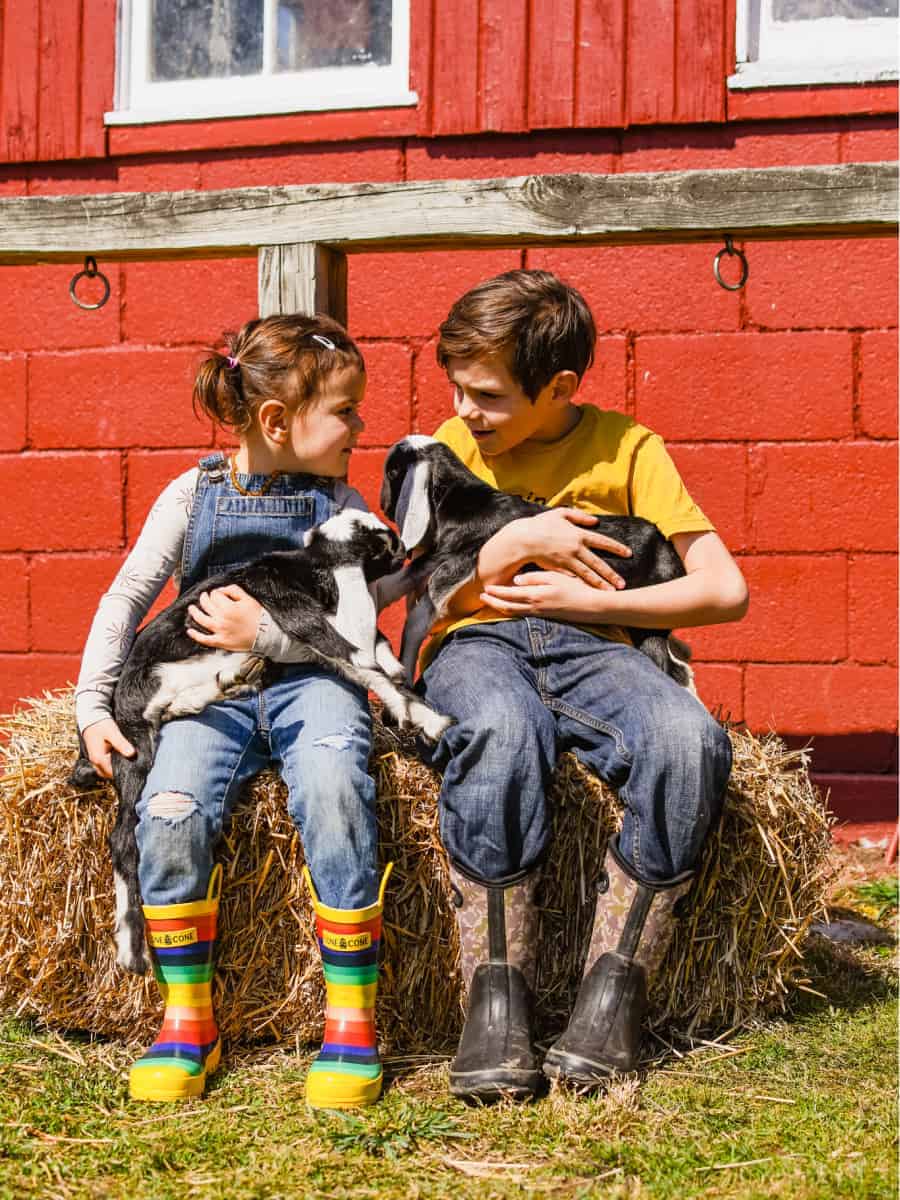
Summer On the Farm with Animals
Everyone loves springtime on the farm – baby animals everywhere and they’re so cute and cuddly! (Even baby vegetables are adorable!) By fall, many farm animals are fully grown – or at least close. What you may not realize is that there is a magical time between spring and fall which seems like animal childhood. Summer! This is when the animals develop their distinct personalities, find their tribe, and learn whatever it is they are supposed to learn. Just like children, animals often learn through play. Today, we have Ginny Yurich, founder of the 1000 Hours Outside challenge, here to walk us through the growing up months of farm animals! As a first-year farmer, she’s been fascinated to learn so many new things she was never expecting to learn. Are you curious about summer on the farm with animals is like? Read on!
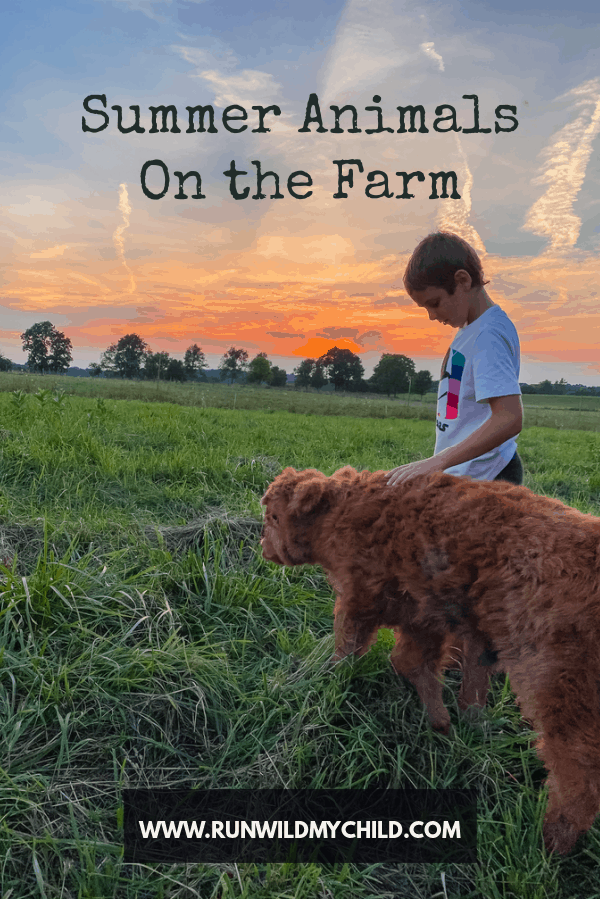
Little farm animals have big personalities
Springtime on a farm is so exciting, everything is bursting forth with new life. It can also be a challenging time as new farm babies don’t always make it. There are high highs and there are very low lows. However, once springtime passes into the summer months, there are a lot of new little animals to take care of and I was surprised to see all sorts of individual characteristics emerge. Summer on the farm with animals is a really magical time of year – particularly if you get to experience it with your kids.
Prior to living on a farm and being around farm animals, I would’ve thought there wasn’t much distinction from one goat to the next. Who knew chickens had such distinct personalities? Turns out, farm animals have all sorts of personalities and unique characteristics. Summertime is when those personalities start to emerge and you get the opportunity to meet your new crew and learn all about them.
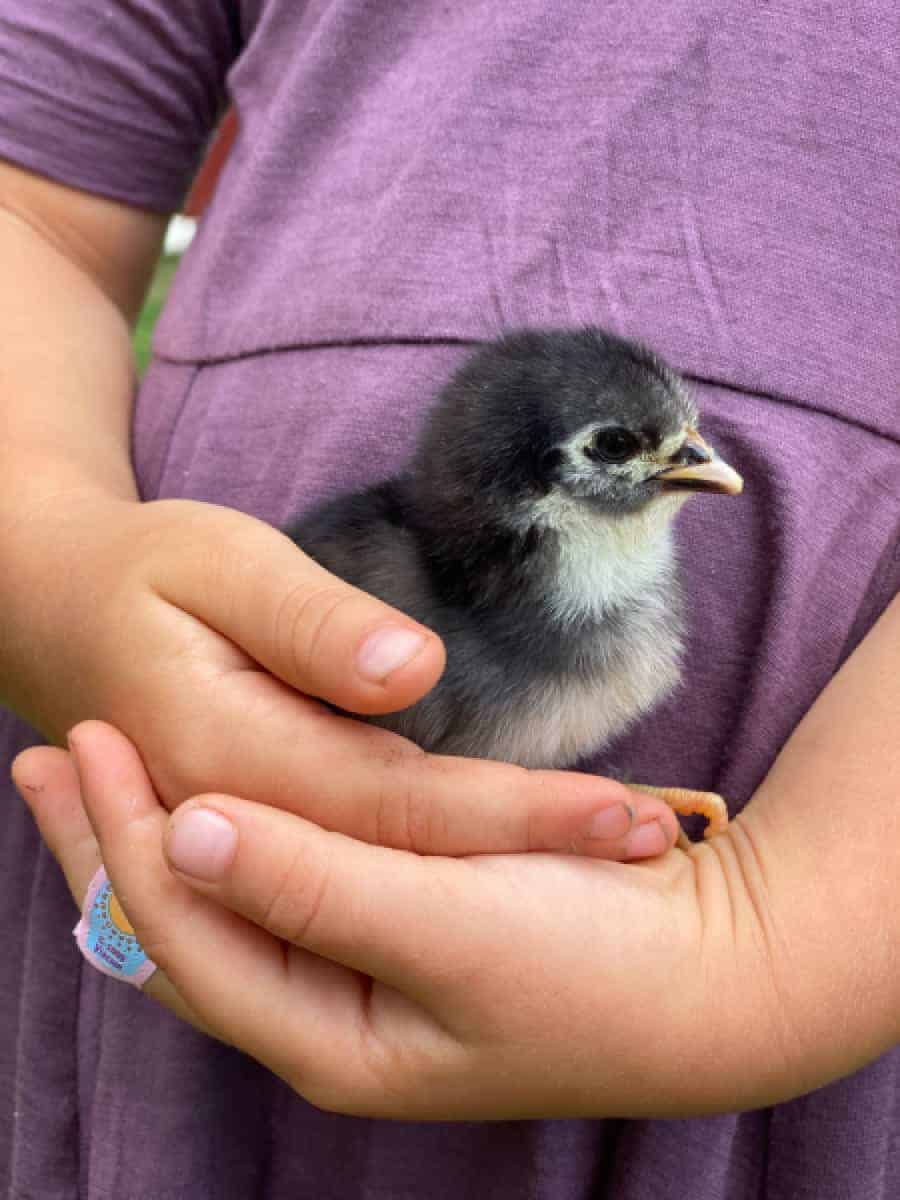
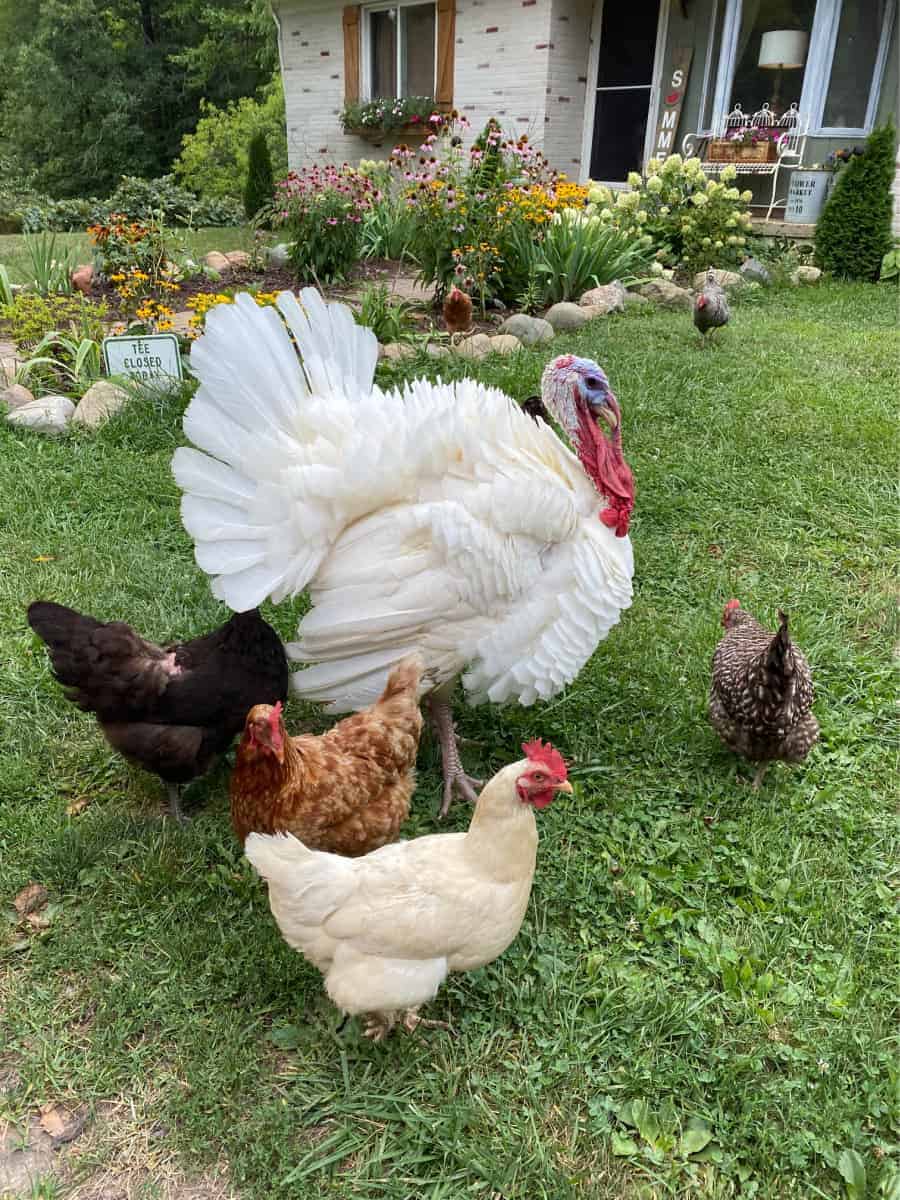
Birds of a feather flock together
Fun fact: There are over 20 billion chickens in the world. Beyond chickens, there are other birds in the same animal order (technically called “Galliformes”) that include turkeys, quail, pheasants, peacocks, guineafowl, and more! Often the chicks can be raised together in the same incubator; a space where they are kept warm for the first several weeks of life.
As they grow older, even though they don’t know what they look like, they gravitate to the birds of their own kind. It’s incredible. The turkeys hang out with the turkeys. The guineafowl run with the other guineafowl. And the chickens all roost together at night. Sometimes, a few chickens may team up with a guinea or two, or any other combination of these chicken-like birds. But by the end of the summer, they all have separated on their own to be with birds who have the same characteristics. Summer on the farm is when important decisions are made in the life of a bird.
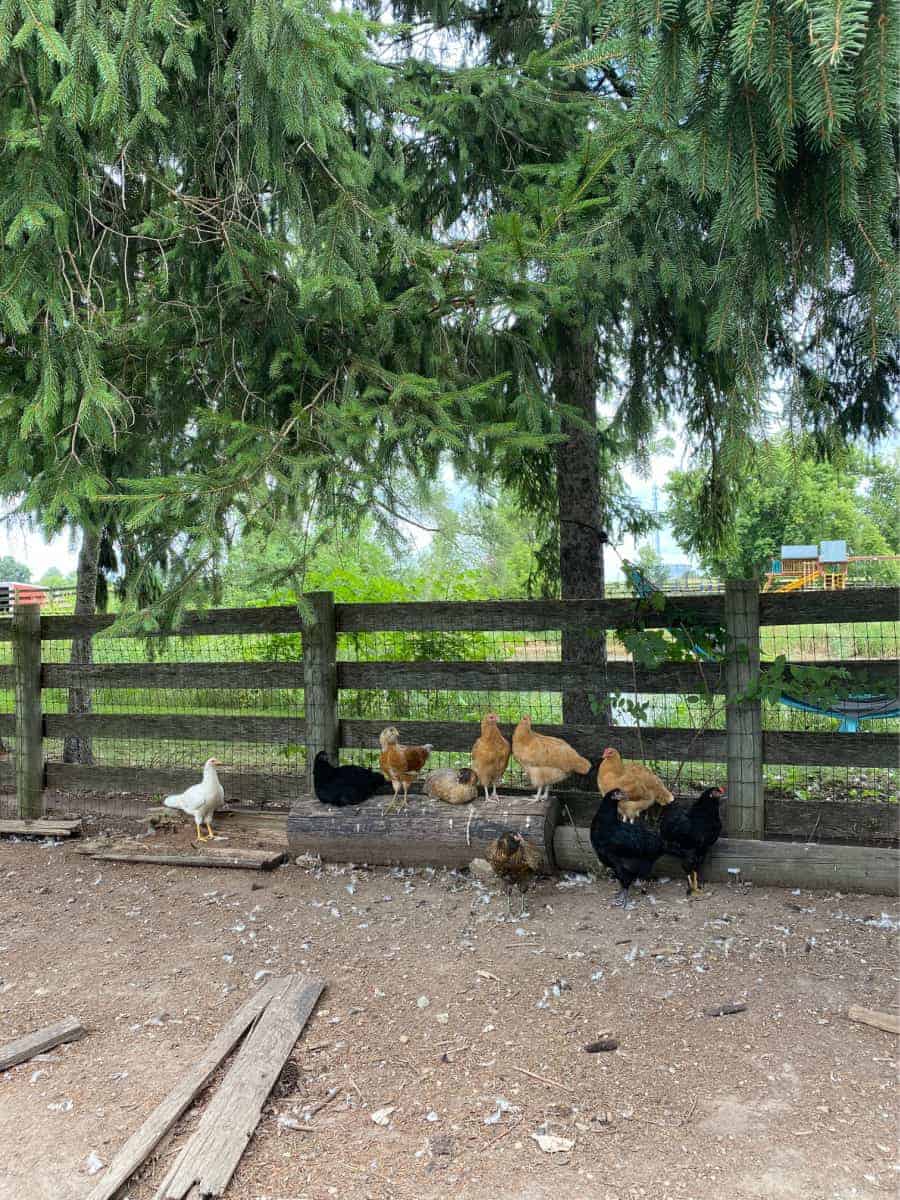
Learning about chickens, turkeys and guineafowl
We’ve learned so much about our birds this past year and summer on the farm has been a great time to observe them. As chickens, turkeys, and guineafowl grow up they are busy establishing a pecking order. If you have a lot of poultry-type birds you can watch this sophisticated process unfold. The birds start to group together almost like little gangs! There always tends to be one who leads the pack when they run around the chicken run or when they free range. How do they keep this all straight? Well, chickens are able to differentiate between more than 100 chicken faces of their own species! It helps that they can see in full color. It’s remarkable.
The personality of chickens
Some chickens like to stay put near their coop. They are satisfied to have food and water brought to them daily like royalty. Others are foragers, doing what they can to escape their confines to explore nearby property. They look for bugs and dig small holes to sit in to stay cool. At night, some birds will enter the coop like clockwork, ready to roost and rest to prepare for the next day. Others try their best to get into available trees, also roosting but in actual branches instead of on poles in the coop.
One thing we didn’t know when we first got chicks is that it can take up to six months before they actually begin laying eggs. Some will lay eggs a little earlier depending on breed. Even once they begin laying it takes them a while to get into a groove. The first eggs can be small and may not even have a shell! Where will you find the eggs? Possibly in a nesting box in your coop. But, if your chickens are free-range, there is no end to where they may lay them. In fact, one of our hens was hiding an entire clutch of amongst some long grasses for three entire weeks! We only found them because they hatched and six little chicks were out following their mama around.
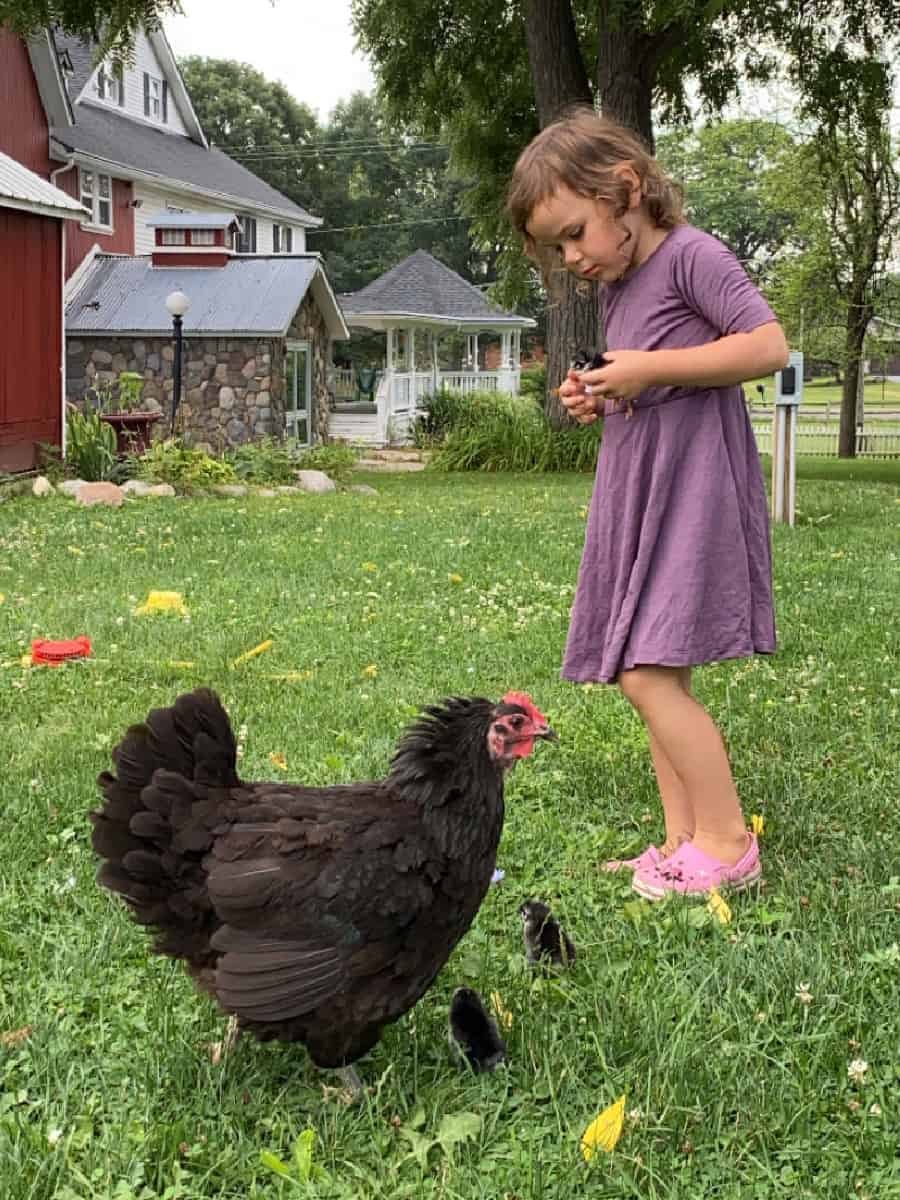
Oh, the life of a pig!
Summer on the farm with pigs has definitely been interesting! Before we got pigs I had read that they don’t smell all that bad. In my opinion, that turned out to be false. Pigs definitely have a distinct odor and most would find it quite unpleasant. Piglets themselves are very strong. At just 30 pounds they are hard to control, imagine when they grow ten or more times that size! Some pigs can grow to over 700 pounds.
During the summer pigs do what you would expect them to do – they eat. And then they wallow in the mud to keep themselves cool. And then they sleep. Oh, the life! Pigs are extremely intelligent animals. Ours have escaped their pen more than once by lifting the gate entirely off its hinges. You’ve gotta be quick with pigs around. If they are out for long, they will root up your entire lawn. You’ve also gotta be quick with pigs because pigs are fast runners! On those short little legs they can run a seven-minute mile!
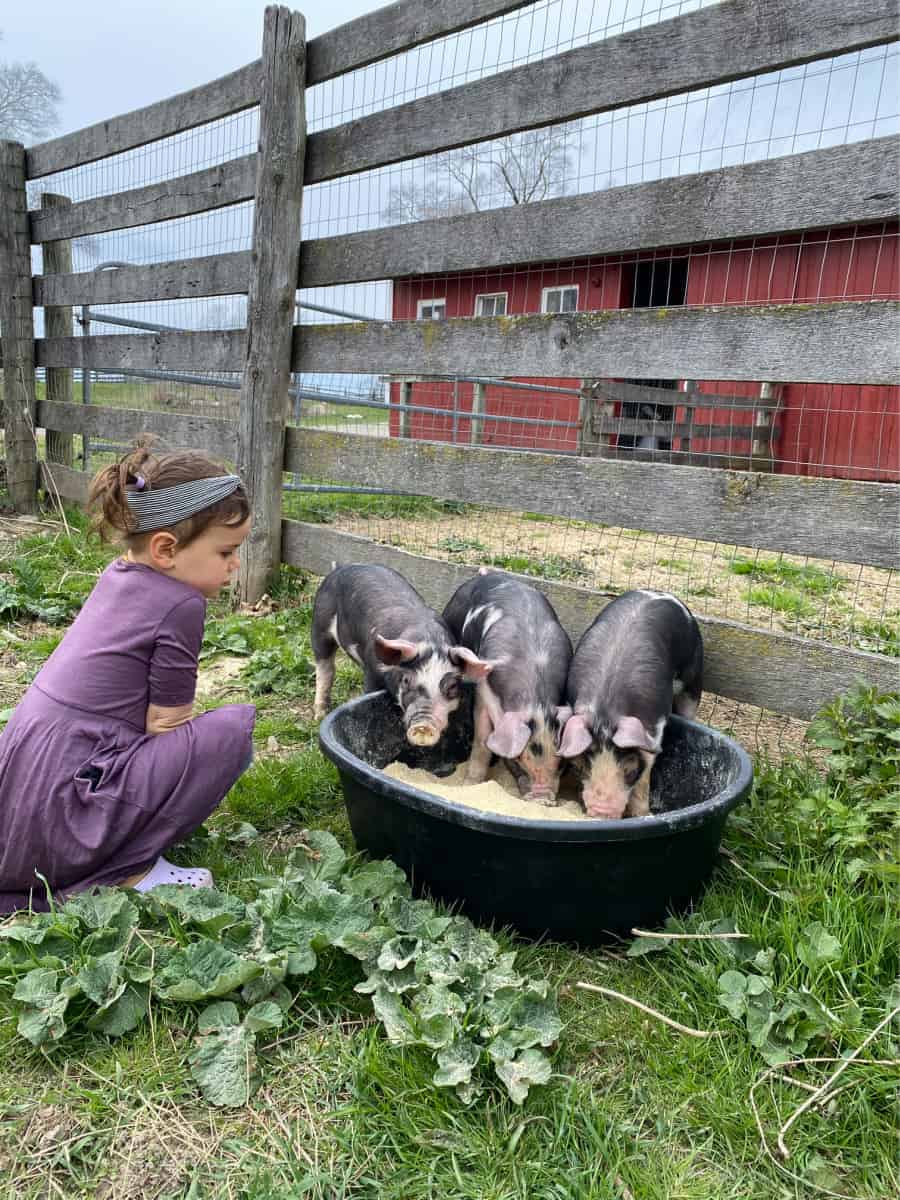

Raising goats
There isn’t anything much cuter than a baby goat. Did you know baby goats can be up and walking within minutes of birth? As they grow, goats develop unique and distinct personalities. Some are calm, while others are more active and wily. Some try and escape time and again, while others are fine to stay put. Eventually, if you breed a female goat (also called a doe or a nanny) and she gives birth you may be able to milk her. Certain goats are fine with the milking process while others kick and jump the entire time.
Just like humans, goats need companionships. Unlike dogs, where a family could own just one, it would be unhealthy to own just one goat. A group of goats is called a herd (ok, not that surprising), but if you’re going to have goats…go with the herd mentality. Get a bunch!
Baby goats jump and frolic and as they grow they become very good at climbing. Often farms will have small goat playgrounds for the goats to jump around on. Below is a photo of our only goat escapee, Spirit. She is constantly squeezing out of her pen to forage for new weeds while her mama (Willow) and brother (Spark) are fine to stay put. The good thing is that she’s still small enough to be lovingly carried back to the barn.
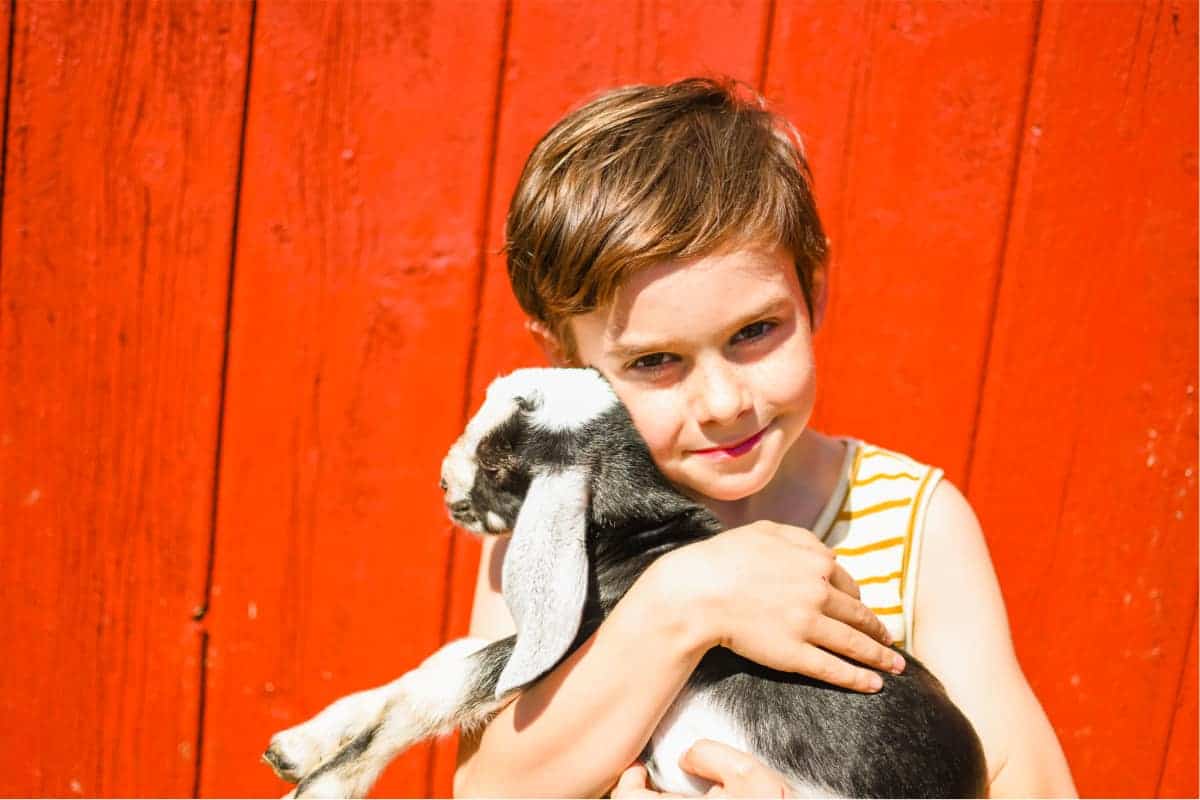
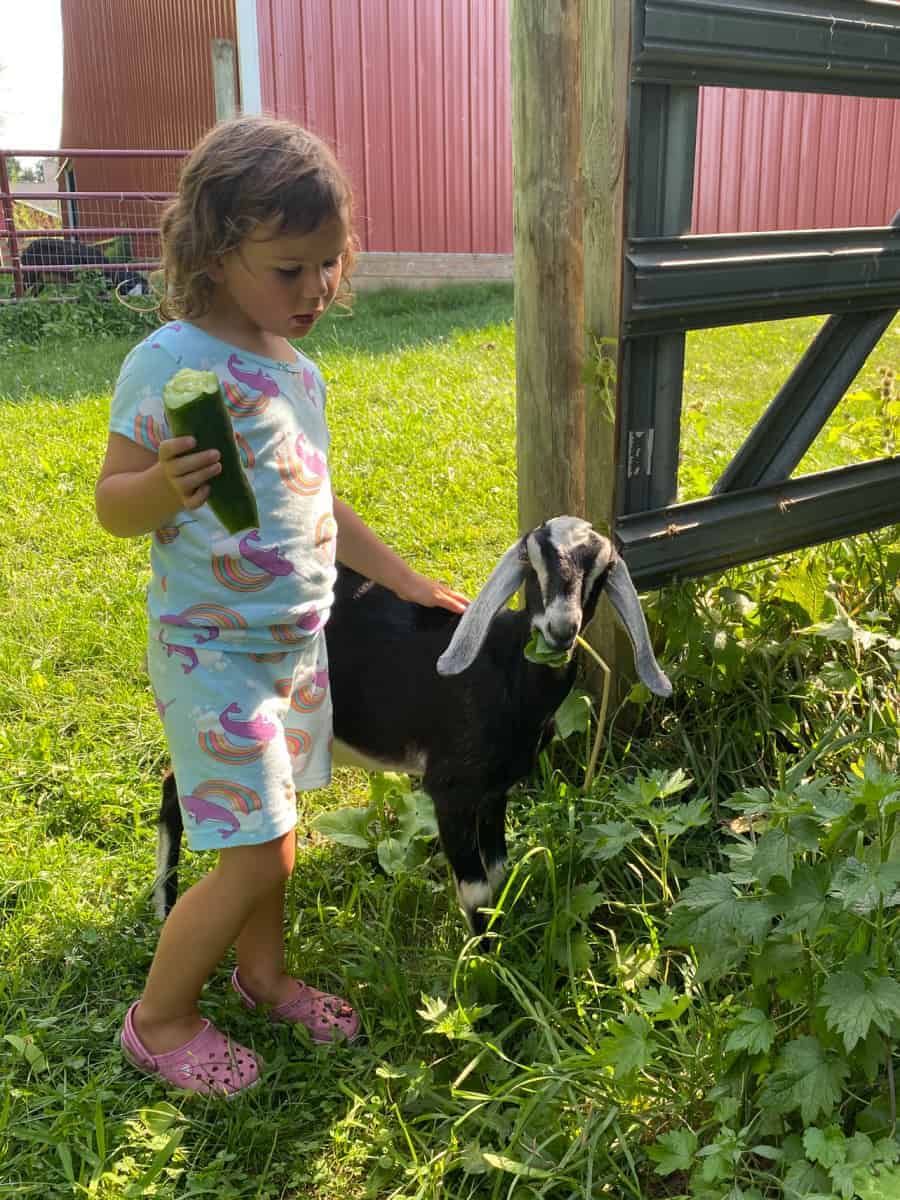
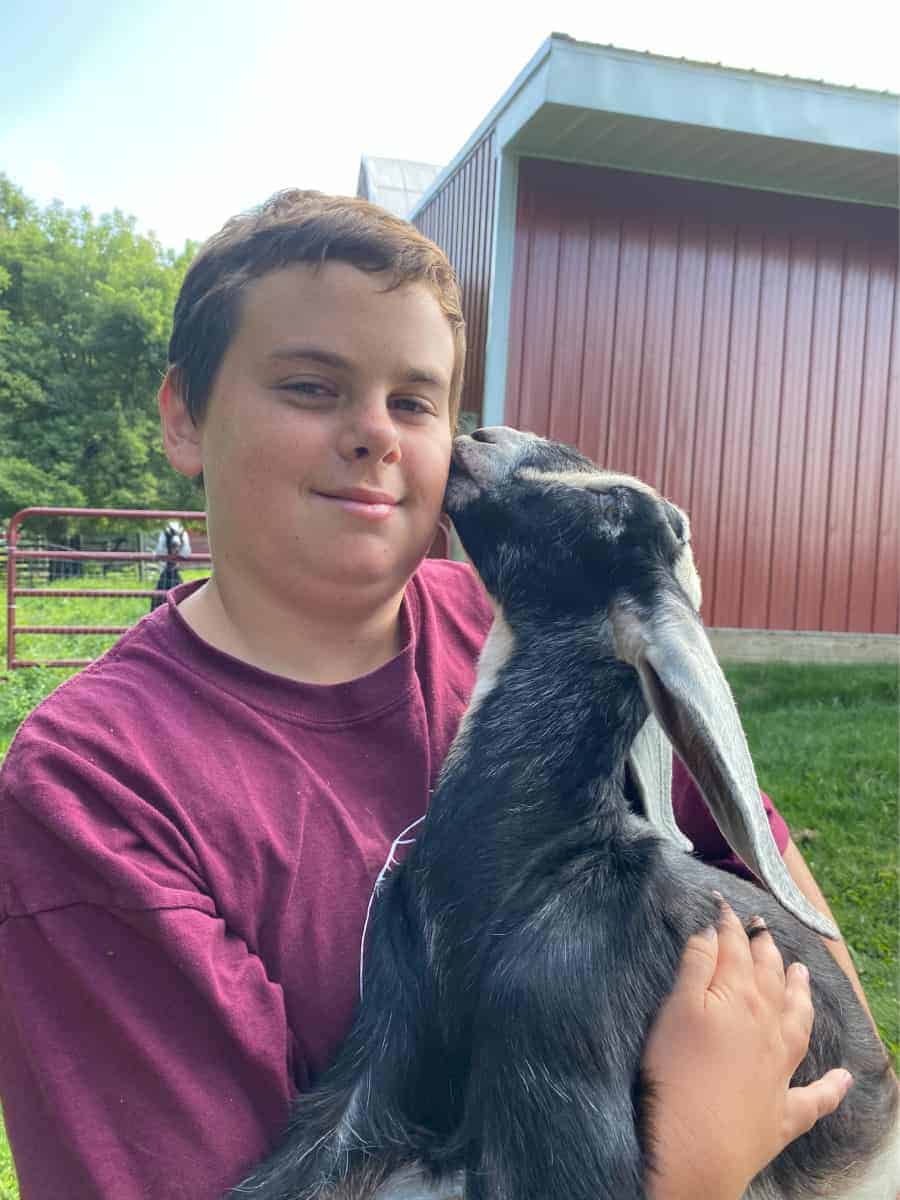 Barn cats
Barn cats
The barn cats (and kittens) have been such a delight for us this summer! At birth, kittens weigh about the same as a lemon. For the first one to two weeks of life, they cannot see or even hear! Both their eyes and ear canals are closed when they are born.
It takes about four weeks for a kitten to begin to play. Just like in children, this play helps them learn the skills they need to learn in order to survive. Kitten play looks like running, climbing, pawing, chasing, and pouncing. They often play with their siblings (some of whom may be half-siblings, see below). Kitten play will help them develop social skills as well as predatory skills, both of which are needed if the kittens remain outdoors.
One of the most interesting things I’ve ever learned about kittens is that all of the kittens in a litter aren’t necessarily from the same father. Each egg is fertilized by one single sperm. And if there are several male cats (“toms”) around, each egg may be fertilized by a different tomcat. This may account for the variety of colors, patterns, and personalities that emerge from one single litter of kittens.
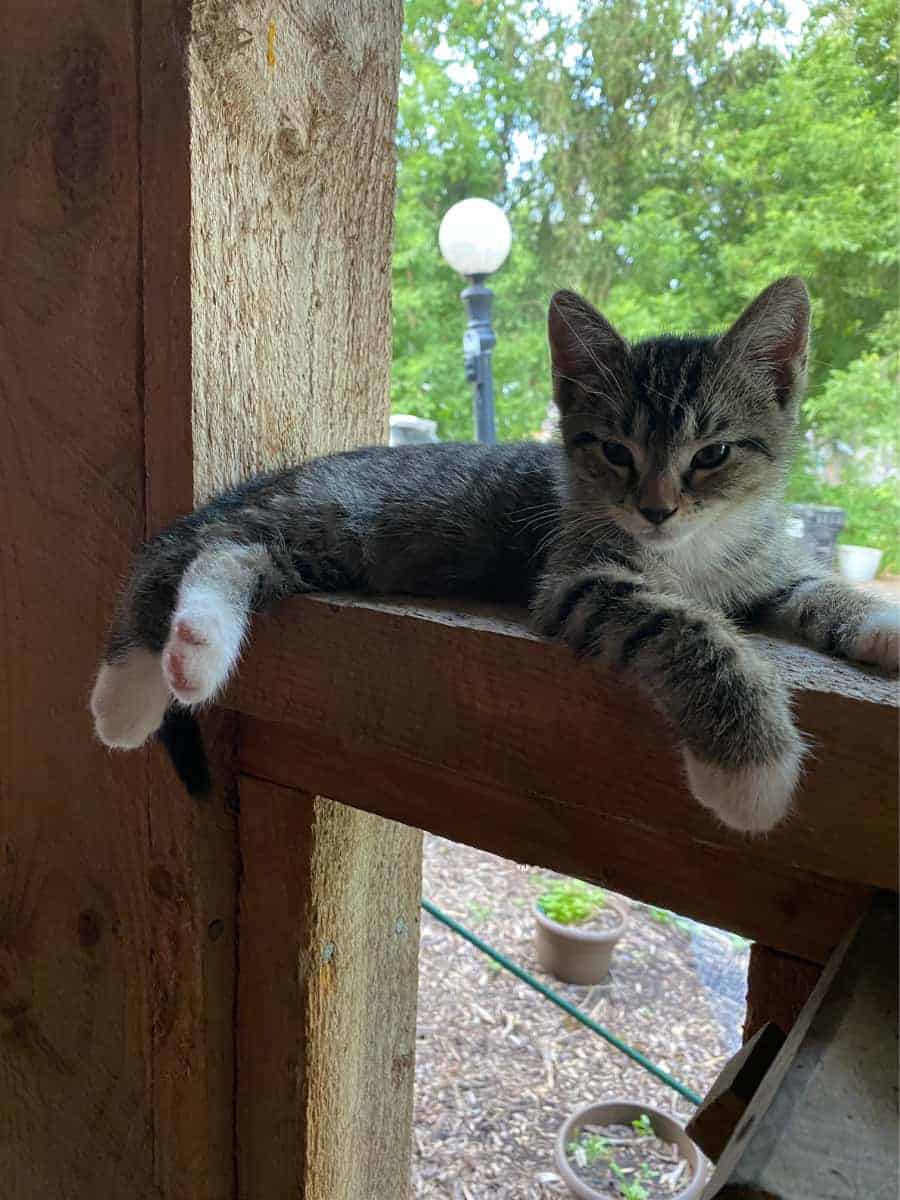
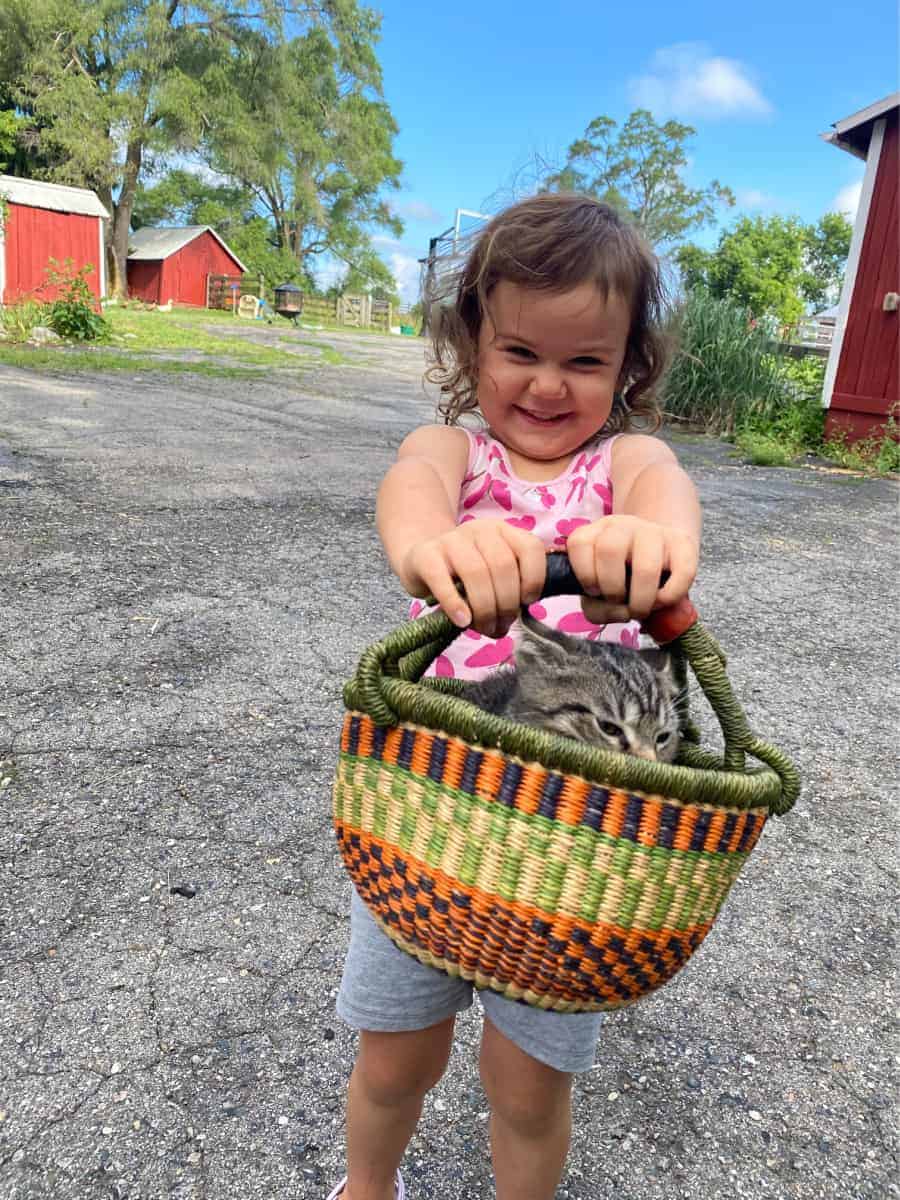 Summer on the farm
Summer on the farm
Summer on the farm is like a sped-up version of childhood. It is such an exciting experience to watch our farm animals grow and observe their personalities and unique characteristics emerge and shine. Those individualities make it a little harder if a particular animal passes, which can be a common experience due to all sorts of factors such as parasites or predators. Still, the animals that do grow up on your farm can become like little family pets. Once the springtime rolls around again, many farm animals will be old enough to reproduce themselves and the beautiful process of life begins all over again!
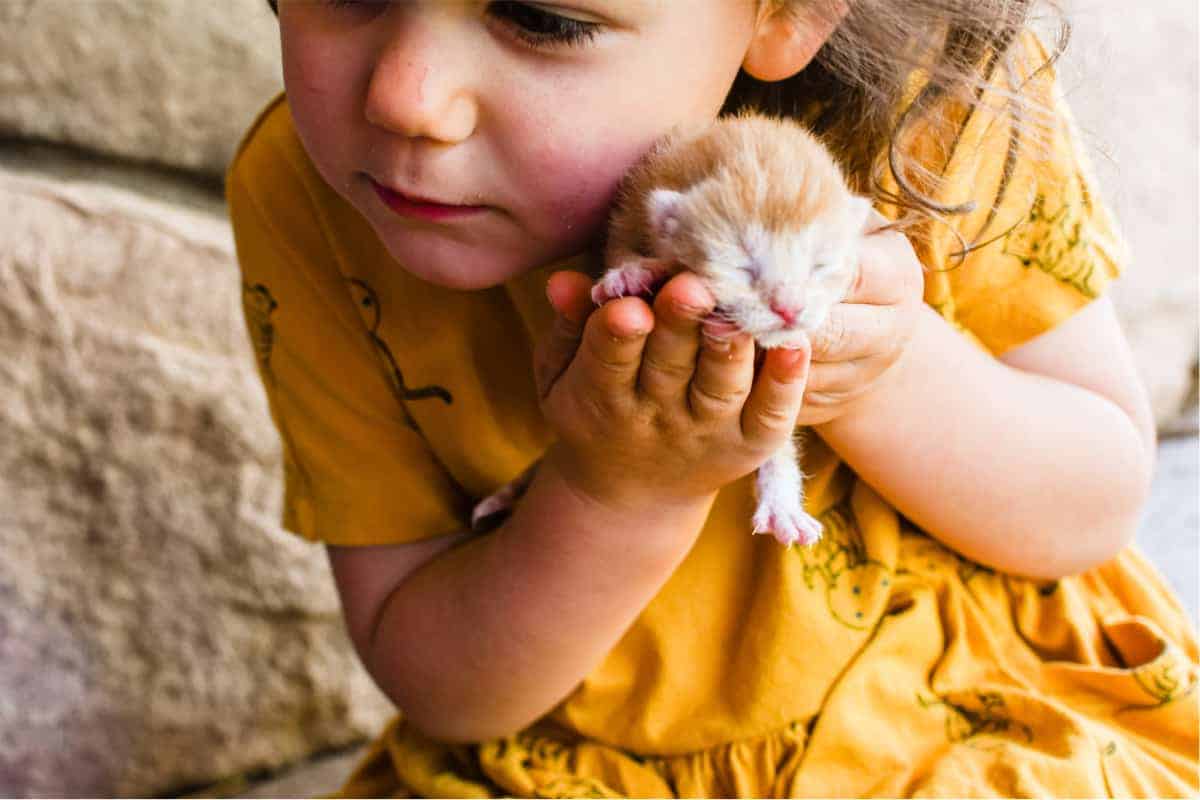
What is your favorite farm animal?
Are there farms near you that are open to having visitors?
About the author
Ginny is a Michigan homeschooling mother of five and the founder of 1000 Hours Outside. She is a thought-leader in the world of nature-based play and its benefits for children. Her 1000 Hours Outside Challenge spans the globe and many people from all walks of life look to her for inspiration as well as practical tips on how to put down the screens and get outside. Ginny has a Masters Degree in Education from the University of Michigan and is also a children’s book author and illustrator. Her book, The Little Farmhouse in West Virginia was published in February 2019.
You can find more from Ginny in the following locations:
Website: www.1000HoursOutside.com
Instagram: @1000hoursoutside
Facebook: @1000hoursoutside
RWMC posts: Ginny Yurich
Comments
One response to “Summer On the Farm with Animals”
[…] visit a petting zoo, farm, nature center or animal safari center. Here are some great reasons why summer on the farm with animals is so much […]


Leave a Reply